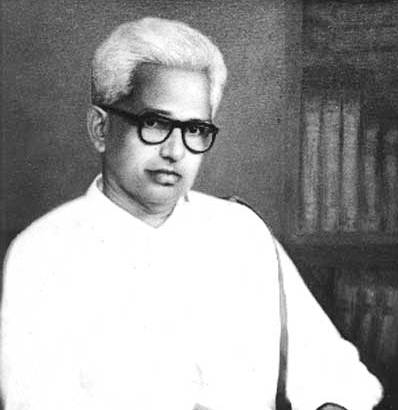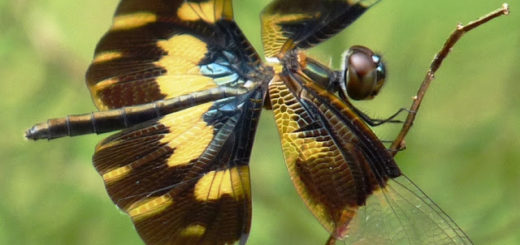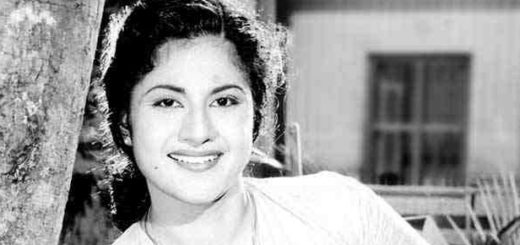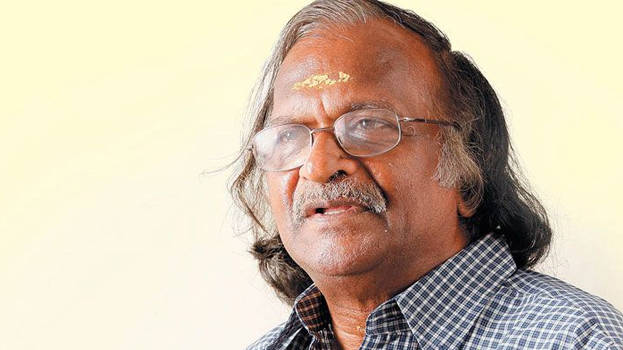G. Shankara Kurup – The winner of India’s first Jnanpith Award
A few days back when I opened my newspaper in the morning, a column in the first page caught my attention first. It was a small column on Shankha Ghosh, the winner of 2016 Jnanpith Awards – the most prestigious award given to an Indian writer for his contributions to Indian literature in any of Indian official languages. Suddenly a thought flashed through my mind. It was nothing else, but about Mahakavi (great poet) of Malayalam literature who received this honour first. G. Shankara Kurup, popularly known as ‘G’ is the pride of every Keralite who won first Jnanpith Award (1965) for his collection of poems, ‘Odakkuzhal’ (Literal meaning – The flute), and through this column I would like to honour this great poet of Malayalam literature in my own words.

G’s works I liked most
Before I start, let me give mention about his poems which I like most. Both of them belong to the list of poems I learnt at school. First one is from Githanjali (Malayalam translation of Rabindra Nath Tagore’s Githanjali) and second one is the poem ‘Ente Veli’ (My marriage) from his award winning collection of poems ‘Odakkuzhal’. If you read and understand the depth of the poem ‘Ente Veli’ you will simply bow before this great personality – No doubt! The simplicity and depth by which he compares ‘Marriage’ with ‘Death’ is remarkable. It was for the first time, when I read this poem I came to know about the striking similarities of both the occasions – marriage and death. Yes, both marriage and death give us separation, parting pain and tears! His great poet conquered millions of his lovers through his symbolizing poems, a trademark quality of his works. He also shined as a prose writer, playwright, scholar with deep knowledge in grammar and also a teacher.
Let me add one more thing, he introduced a new award for Malayalam literature from the prize money he got for first Indian Jnanpith Award for talents of Malayalam and it’s known as ‘Odakkuzhal Award’ – named after ‘Odakkuzhal’, the collection of poems for which he got Jnanpith. It’s given every year, even now. Mahakavi G. Shankarakurup popularly known as ‘G’ was the first person to receive Jnanpith Awards given by Bharathiya Jnanpith Trust. This award was started in 1962. Now let me briefly sketch this simple person in my own words to know this great poet near.
G’s Childhood filled with poems
Shankara Kurup was born in 1901 June 3rd in Kalady of Ernakulam district as the son of Nellikkapalli Shankara Varyar and Lekshmikutty Amma. Nayathod is his native village. He was greatly inspired by his uncle Govinda Kurup whose first letter ‘G’ was added to his name as his pen name. Also, he learnt first lessons of Malayalam and literature from his uncle. In old Hindu families, maternal uncle is head of a family and everyone respects him a lot. Govinda Kurup was not at all interested in sending young Shankaran to school. So he taught his nephew the primary lessons of Sanskrit. After learning great Sanskrit works – Sriramodantham and Raghuvamsam from his uncle, Shankara Kurup joined a primary school for education.
G wrote his first short poem when he was just four years old. While studying at school, he used to participate in competitions conducted in Kochi and Trippunithura. On one such occasion, when he was returning to home, he happened to meet Sri Narayana Guru at Adwaitha Ashram at Aluva – a memorable moment of his life. Once he passed Vernacular Higher Exam, he was appointed as the head master of Kottamam High School when he was just 17. He worked as a teacher at Vaikkam Convent School (1919), Thrissur Training College (1926) and Ernakulam Maharaja’s College (1937).
To the world of literature
Shankara Kurup entered the wonderland of poems while he was working at school. Poems ‘Padunna Kallukal’ (Singing stones), ‘Azhimukhath’ and ‘Karunan’ took birth in G’s mind during this time. He wrote poems mostly during summer vacation and they were published in Athma Poshini. A popular poem ‘Karnan’ was published in Kavana Kaumudi. When he got transfer, he submitted his resignation and came back to C. S. Nair to restart his Sanskrit classes. Then he joined Thiruvilvamala High School as teacher and wrote numerous poems this time.
In 1937, G. Shankarakurup became lecturer in Maharajas College, Ernakulam. He wrote the poem ‘Naale’ (literal meaning – tomorrow) during his years at Maharajas College. Best of G’s works – Odakkuzhal, Anthardaaham, Sooryakanthi (Sun flower), Nimisham (Moment), Padhikante Paatt (Song of traveller) and Perunthachan were published this time. He retired from Maharajas in the year 1956.
Awards and literary prizes
Apart from Jnanpith in 1965, he got Kerala Sahithya Academy Award in 1961. He got Padma Bhushan in 1968 too. He left this world on 1978, February 2.
Before I wind up, let me mention a few more, best of G. Shankarakurup works – Pooja Pushpam (Flowers of Worship), Chenkathirukal (Red rays), Olapeeppi, Ilam Chundukal, Sooryakanti, Nmisham, Odakuzhal, Padhikante Paatt, Muthukal (Beads), Vanagayakan (Forest singer), Ithalukal (Petals), Paadheyam, Jeevana Sangeetham, Nava Aditi, Megha Chaya, Swathanthrodayam, Gadhyopaharam, Muthum Chippiyum, Raakkuyilukal, Lekhamala, Raja Nandini, Harischandran, Radhaa Rani, Varmazhavillu, Kaate Vaa Kadale Vaa, Ormayude Olangal, Vanagayakan, Viswadarshanam, Moonaruviyum Oru Puzhayum ( 3 streams and one lake) and Sandhya Raagam. Vilasalahiri and Geetanjali are his translation works.
Read a few more articles on some of the stalwarts of Malayalam literature belonging to different eras. Here is the page link. Click on the images in the gallery to read















Recent Comments